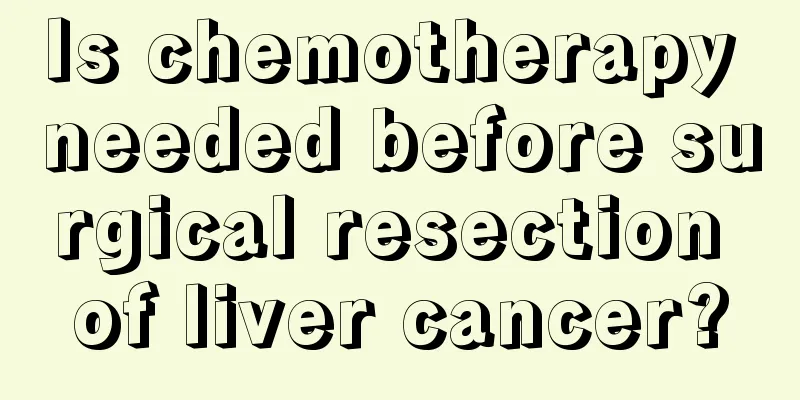What are the symptoms of Behcet's syndrome?

|
Behcet's syndrome is a less common disease in life. It is an immune system disease that can cause great harm to the human body. Since Behcet's syndrome is relatively rare, most people don't know much about the disease. In life, once you suffer from Behcet's syndrome, you must pay attention to it and go to the hospital for treatment as soon as possible. What are the symptoms of Behcet's syndrome? The following are the symptoms of Behcet's syndrome. Behcet's syndrome, also known as Behcet's disease, is a systemic immune system disease and a type of vasculitis. It can invade multiple organs of the human body, including the mouth, skin, joints, muscles, eyes, blood vessels, heart, lungs and nervous system, and its main manifestations are recurrent oral and perineal ulcers, rashes, nodular erythema of the lower limbs, iritis of the eyes, esophageal ulcers, small intestine or colon ulcers and joint swelling and pain. Behcet's syndrome requires regular drug treatment, including various immune-regulating drugs. Without treatment, the prognosis is poor and in severe cases, it is life-threatening. The cause of the disease is not fully understood at present. It may be related to genetics (such as HLA-B51 gene), infection (some patients may be related to tuberculosis infection), and living environment. It is currently believed that the pathogenesis of the disease is that the patient's immune system dysfunction occurs due to the influence of various causes, including abnormal cellular immunity and humoral immunity, hyperfunction of neutrophils, endothelial cell damage and thrombosis, and the immune system's response to its own organs and tissues, leading to inflammation and destruction of organ tissues. Clinical manifestations 1. People who are prone to it The disease can be seen in all kinds of people in my country, from teenagers to the elderly, but is more common in young and middle-aged people, and can occur in both men and women. 2. Oral ulcers The main symptoms of patients are recurrent oral ulcers and pain. The ulcer surface is deep and the bottom is mostly white or yellow. Multiple ulcers (commonly known as "mouth sores") can appear in multiple parts of the body at the same time, including the tongue, lips, palate, pharynx, etc. Most ulcers can improve on their own, but they often recur. In severe cases, the pain is severe and greatly affects eating. 3. Genital ulcers In addition to oral ulcers, patients may also develop ulcers in the vulva, such as male and female genital ulcers. The ulcers in these areas may be larger and may be single. 4. Eye lesions Some patients may also experience eye lesions, such as redness, pain, photophobia, or decreased vision and blurred vision. One or both eyes may be affected. Some patients may also present with eye lesions 5. Skin manifestations Some patients also develop skin lesions, manifested as "acne"-like rashes on the face, chest, back or other parts of the body, or manifestations similar to "boils". They may improve on their own but are prone to recurrence. In addition, some patients will experience cyanosis, swelling and pain in the lower limbs, and "bumps" can be felt. Some patients will have recurrent erythema in the lower limbs, which vary in size, from soybeans to coins, and are painful when pressed. This phenomenon is called "nodular erythema." Some patients may experience redness, swelling, blisters or pustules at the site of the infusion or blood draw, most of which occur within 24 to 72 hours after the injection. This phenomenon is called a positive "needle prick reaction." 6. Joint disease Many patients will experience joint pain or swelling, which may occur in one or more joints, more commonly in the lower limb joints, and may be accompanied by arm and leg pain. In severe cases, joint effusion and synovitis may occur. 7. Digestive tract lesions Another common symptom is gastrointestinal symptoms, including difficulty swallowing or chest pain when swallowing, acid reflux, heartburn, abdominal pain, diarrhea, pus or blood in the stool, or feeling a mass in the abdomen, weight loss, emaciation, and loss of appetite. All or just one of these symptoms may appear. Patients who have undergone gastroscopy or colonoscopy will be told that they have "ulcers." 8. Vascular disease A small number of patients may develop thrombophlebitis and deep vein thrombosis, and in severe cases, pulmonary embolism may also occur. Patients may experience shortness of breath, shortness of breath, chest pain, and even fainting after activities. Some patients may develop aneurysms, which may cause local embolism and ischemia. After the aneurysm ruptures, it may cause massive bleeding and even be life-threatening. 9. Nervous system diseases Some patients may experience stiffness of hands and feet, headaches and dizziness, nausea and vomiting, numbness, pain or weakness in the hands and feet, and paralysis of one side of the hands and feet. In severe cases, they may experience convulsions, rolling of the eyes and other symptoms similar to "epilepsy". These may be caused by Behcet's syndrome damaging the nervous system. The part of the nervous system that is often affected is the brainstem, and can also be seen in the spinal cord, cerebral hemispheres, cerebellum, and meninges. Brain atrophy may occur. 10. Systemic symptoms Many patients have systemic symptoms such as fatigue, poor appetite, low fever and weight loss. |
<<: Symptoms of heart disorders?
>>: Is the oil on the condom harmful?
Recommend
What kind of avocado is ripe
Avocado, also known as avocado, is a fruit grown ...
How to prevent bladder cancer recurrence: 6 tips to keep in mind
With the continuous improvement of people's l...
Can't stand seeing others do better
Human beings are complex creatures, because human...
What is ca hormone? Is there any relationship between ca hormone and the six hormone items?
In many disease test reports, there are indicator...
Can protein powder and eggs be eaten together?
Protein powder and eggs can be eaten together. In...
What are the benefits of Chen Ai foot bath
Soaking feet with aged mugwort is not a new thing...
What are the methods for brain cancer examination
Tumors that grow inside the skull are generally c...
What should liver cancer patients pay attention to in their diet? Revealing the four dietary precautions for liver cancer
When it comes to cancer, everyone will shudder. T...
What is the principle of egg white and white wine in reducing inflammation
In people's lives, there are many ways to tre...
What is the reason for the heat in the palms and soles of feet
Many people are afraid of heat, especially in sum...
The difference between blood transfusion and plasma transfusion
Everyone is very familiar with blood transfusion....
The difference between makeup remover and facial cleanser
Makeup remover and facial cleanser are completely...
Wisdom teeth decayed
In the first twenty years or so of life, people g...
Which three places are itchy in stomach cancer
Gastric cancer patients may experience itching in...
Is caring for lung cancer patients contagious?
Is caring for lung cancer patients contagious? Ma...









